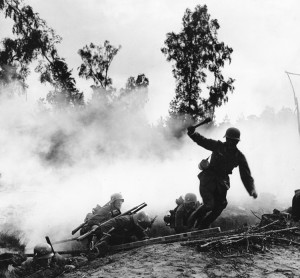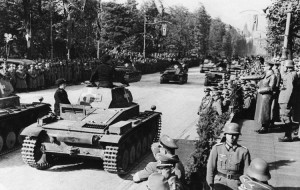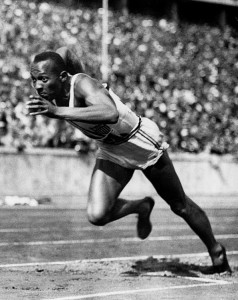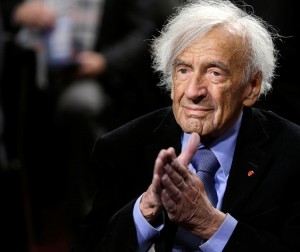Concentration Camp Guard Convicted at 93
Tuesday, July 28th, 2020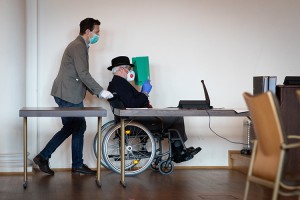
Bruno Dey, a former guard at the Stutthof concentration camp, hides his face as he is wheeled into a courtroom in 2020. The 93-year-old Dey was convicted of complicity in the murder of 5,230 people at the German-run camp during World War II (1939-1945).
Credit: © Christian Charisius, AFP/Getty Images
In July 2020, a 93-year-old man was found guilty of helping Nazis murder thousands of people while serving as a guard at a concentration camp in Poland during World War II (1939-1945). The former Nazi guard, Bruno Dey, was convicted (declared guilty) of 5,230 counts of accessory to murder, meaning that he aided in over 5,000 deaths. The number of charges represents the number of people believed to have been killed in the Stutthof concentration camp.
The Nazis, led by the dictator Adolf Hitler, controlled Germany from 1933 to 1945. The Nazi government operated concentration camps at which people—many of them Jews—were imprisoned and forced to work. In some cases, these people were killed without legal proceedings. The imprisoned people also included socialists, Communists, priests, homosexuals, and political prisoners, among others.
Although Dey is 93, he was tried in a juvenile court, because he was 17 when he committed the crimes. Juvenile court is a special court that handles cases involving children accused of crimes. During the trial, Holocaust survivors spoke of their horrific experiences in the Stutthof camp. The Holocaust was the systematic, state-sponsored murder of Jews and others by the Nazis during World War II.
Such survival stories are not restricted to courtrooms. Rather, stories, possessions, and photographs from the Holocaust have been collected in museums throughout the world. The Holocaust Memorial Museum in Washington, D.C., features films, photographs, eyewitness accounts, and various objects from the Holocaust. The museum is devoted to teaching the history of the Holocaust.
Given his advanced age, Dey is perhaps one of the last participants in the Holocaust to be convicted. In recent years, German courts have tried many people who participated by either rounding up Jews or operating concentration camps. These efforts have become urgent, because many of these participants are now in their 90’s.
Trials to convict Nazis began soon after the end of World War II. Chief among these were the Nuremberg Trials (1945-1949). These trials were the first successful war crimes trials conducted against senior Nazi officials. Another prominent trial was that of Adolf Eichmann, a lieutenant colonel in the Nazi secret police. In 1961, he was convicted and executed for his part in the killing of about 6 million Jews during World War II.

